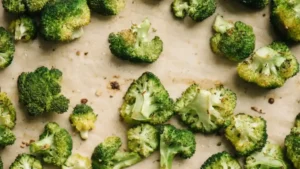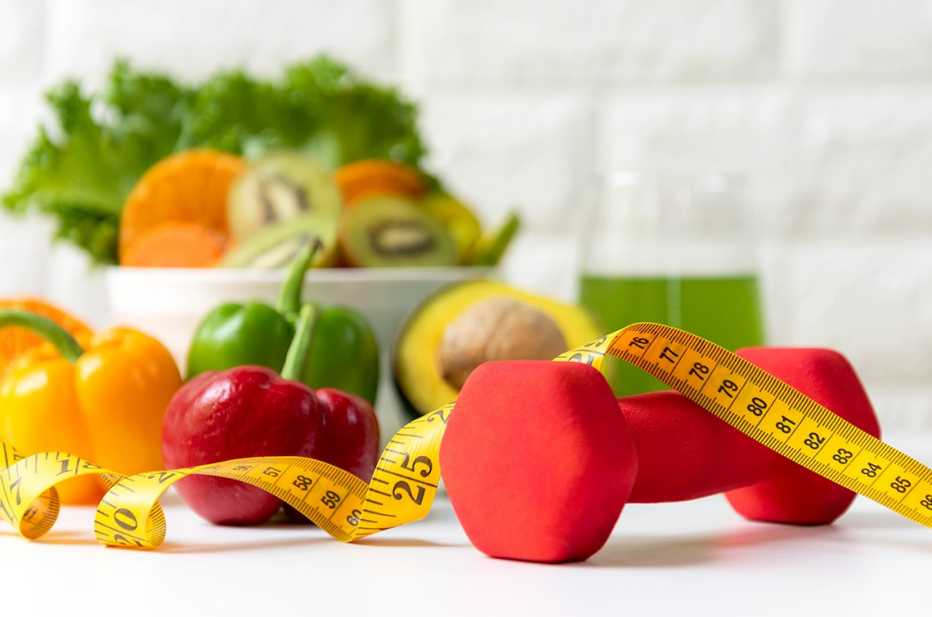Experiencing low blood sugar, medically known as hypoglycemia, can be unsettling and uncomfortable. If not addressed, symptoms like dizziness, sweating, and shakiness can disrupt your day and pose serious health risks. While traditional medicine offers solutions, many individuals seek natural remedies to balance their blood sugar levels gently and effectively. This guide explores various natural remedies for low blood sugar. From dietary adjustments to lifestyle changes, these approaches can help you maintain a healthy glucose balance.
Contents
Best Natural Remedies For Low Blood Sugar
 Managing low blood sugar (hypoglycemia) involves a blend of dietary changes, lifestyle adjustments, and, in some cases, natural remedies. Here are some of the best natural remedies for low blood sugar:
Managing low blood sugar (hypoglycemia) involves a blend of dietary changes, lifestyle adjustments, and, in some cases, natural remedies. Here are some of the best natural remedies for low blood sugar:
Consume Balanced Meals and Snacks
Eating small, frequent meals throughout the day is a cornerstone for managing low blood sugar. This approach helps avoid the peaks and troughs in blood sugar levels that can occur when meals are skipped or when there’s a long gap between meals. Each meal and snack should be well-balanced, incorporating a mix of carbohydrates, proteins, and healthy fats. For instance, a snack that combines apple slices (carbohydrate) with almond butter (protein and fat) offers sustained energy release compared to a snack that is high in simple sugars.
Choose Complex Carbohydrates
Complex carbohydrates play a crucial role in blood sugar management. Unlike simple carbohydrates, which are rapidly broken down into glucose, complex carbohydrates take longer to digest. This slower digestion rate prevents sudden spikes in blood sugar levels, providing a more steady source of energy. Foods rich in complex carbohydrates include whole grains like brown rice, oats, and quinoa, as well as legumes, and a wide variety of vegetables.
Incorporate Dietary Fiber
Soluble fiber, in particular, can absorb water and form a gel-like substance in the gut. It slows down the absorption of glucose. This helps to prevent rapid spikes and drops in blood sugar levels. Foods high in dietary fiber include fruits, vegetables, legumes, and whole grains. For example, starting your day with a bowl of oatmeal topped with berries provides a fiber-rich meal that can help maintain stable blood sugar levels throughout the morning. Incorporating a variety of fiber-rich foods into your diet not only supports blood sugar management but also contributes to overall digestive health.
Hydrate Wisely
Hydration plays a significant role in regulating blood sugar levels. Water does not directly lower blood sugar, but it helps to flush out excess glucose through urine and supports metabolic processes. Drinking enough water and staying properly hydrated can prevent dehydration, which can affect blood sugar levels. It’s advisable to opt for water or other low-calorie, unsweetened beverages over sugary drinks, which can cause blood sugar levels to spike.
Regular Physical Activity
Exercise is a powerful tool for managing blood sugar. Physical activity helps muscles absorb glucose and use it for energy. This can lower blood sugar levels. Moreover, regular exercise improves insulin sensitivity, meaning your body can use the available insulin more effectively to regulate blood sugar levels. A combination of aerobic exercises (like walking, swimming, or cycling), strength training, and flexibility exercises are beneficial. It’s important to monitor your blood sugar before and after exercise to ensure it stays within a safe range.
Herbs and Supplements
 Natural herbs and dietary supplements can play a supportive role in blood sugar management, though they should complement, not replace, conventional treatments and dietary adjustments. Cinnamon is often highlighted for its potential to improve insulin sensitivity and lower blood sugar levels. Studies suggest that cinnamon can mimic insulin, thus helping glucose enter cells and lowering blood sugar in the process. Fenugreek seeds are rich in soluble fiber. It can aid in controlling blood sugar by slowing down the digestion and absorption of carbohydrates.
Natural herbs and dietary supplements can play a supportive role in blood sugar management, though they should complement, not replace, conventional treatments and dietary adjustments. Cinnamon is often highlighted for its potential to improve insulin sensitivity and lower blood sugar levels. Studies suggest that cinnamon can mimic insulin, thus helping glucose enter cells and lowering blood sugar in the process. Fenugreek seeds are rich in soluble fiber. It can aid in controlling blood sugar by slowing down the digestion and absorption of carbohydrates.
Chromium is a mineral that enhances the action of insulin and is involved in carbohydrate, fat, and protein metabolism, potentially improving blood sugar control. Alpha-lipoic acid (ALA), an antioxidant, has been shown to help improve insulin sensitivity and may reduce symptoms of diabetic neuropathy.
Mindfulness and Stress Management
Stress can have a profound impact on blood sugar levels. When you’re stressed, your body releases hormones like cortisol and adrenaline, which can increase blood sugar levels. For people managing hypoglycemia, stress management is not just beneficial; it’s necessary. Mindfulness practices, meditation, yoga, and even simple deep-breathing exercises can significantly reduce stress levels. Engaging in these practices regularly can help maintain more stable blood sugar levels by mitigating the physiological stress response.
Adequate Sleep
Lack of sleep can disrupt the hormones that control blood sugar levels, including insulin. Insufficient or poor-quality sleep can lead to higher cortisol levels, decreased insulin sensitivity, and increased appetite, all of which can contribute to less stable blood sugar levels. Ensuring you get enough restorative sleep each night can help maintain insulin sensitivity and support overall hormonal balance, reducing the risk of hypoglycemia.
Monitor Blood Sugar Levels
Regular monitoring of your blood sugar levels can provide valuable feedback on how your body responds to different foods, activities, and stress levels. For those at risk of hypoglycemia, understanding these patterns is essential for preventing low blood sugar episodes. Monitoring can also help you make more informed decisions about meal planning, exercise, and medication if applicable. While continuous glucose monitoring systems offer a comprehensive way to track blood sugar levels, traditional glucose meters can also be effective.
Consult a Healthcare Professional
Before making significant changes to your diet, or lifestyle, or introducing new supplements, it’s important to consult with a healthcare professional. This is especially crucial for individuals with diabetes or those on medications that affect blood sugar levels. A healthcare provider can offer personalized advice based on your health status, medications, and overall goals. They can also help you understand the potential interactions between supplements and medications and recommend the most effective and safe strategies.
These natural remedies for low blood sugar can be part of an overall strategy. However, it’s important to approach them as complements to any medical treatment or dietary advice from your healthcare provider, not as replacements.
How Can I Raise My Blood Sugar Fast Without Food?
 Raising your blood sugar quickly without food might seem challenging since consuming carbohydrates is the most straightforward way to increase glucose levels. However, there are a few strategies you can consider in situations where food isn’t an option or you need an immediate solution:
Raising your blood sugar quickly without food might seem challenging since consuming carbohydrates is the most straightforward way to increase glucose levels. However, there are a few strategies you can consider in situations where food isn’t an option or you need an immediate solution:
Glucose Tablets or Gels
Glucose tablets and gels are designed specifically for situations where you need to raise your blood sugar levels quickly and efficiently. They are easily absorbed by your body and can increase your blood sugar levels within minutes. These products are especially useful for people with diabetes or those prone to hypoglycemia and can be carried easily for emergencies.
Sugary Drinks
If you’re in a situation where solid food isn’t preferable or available, sugary drinks can be an alternative. Juices (like orange or apple juice), regular soda (not sugar-free), and even sports drinks can rapidly increase your blood sugar levels. The liquid form means the sugar gets absorbed quickly into your bloodstream.
Honey or Syrup
Carrying a small packet or container of honey or syrup can be a lifesaver in situations where you need to raise your blood sugar without solid food. A tablespoon of honey or syrup can be absorbed through the oral mucosa to some extent, offering a rapid increase in blood sugar. This method is particularly useful if you’re feeling too nauseated to eat or if you need an immediate boost in glucose levels.
Candy
Hard candies that dissolve slowly in your mouth can also be effective in raising blood sugar levels. Choose candies that are high in sugar and avoid those with sugar alcohols, as they won’t be as effective. Like honey and syrup, candies can provide a quick source of glucose that your body can use to raise blood sugar levels.
Using these strategies can help manage acute episodes of low blood sugar when food isn’t an option. However, they are temporary solutions. Hence, addressing the root cause of frequent hypoglycemia with a healthcare provider is essential for long-term health and safety.
Conclusion
In conclusion, natural remedies for low blood sugar involve a combination of dietary adjustments, lifestyle changes, and sometimes herbs and supplements or quick-fix solutions without food, like glucose tablets, sugary drinks, honey, syrup, or candies. These strategies can help stabilize your blood sugar levels, preventing the uncomfortable and potentially dangerous symptoms of hypoglycemia.
It’s essential to eat balanced meals and monitor your blood sugar levels to maintain overall health. Remember, always consult with a healthcare professional before making significant changes to your health routine. Do you want to get rid of diabetes? Join our online diabetes treatment program and reverse Diabetes naturally through lifestyle changes such as a Personalized Diet plan, Exercise, Yoga, dieticians, and health coaches.

